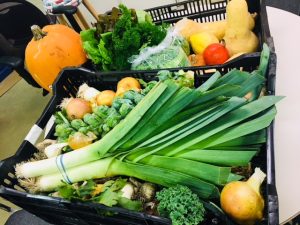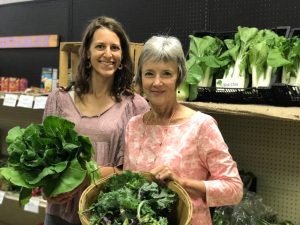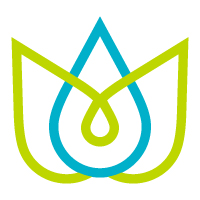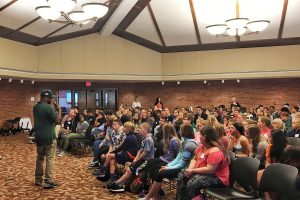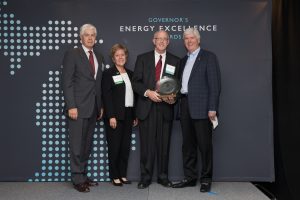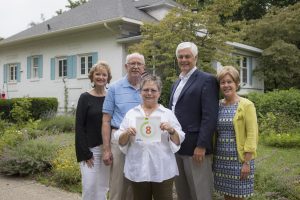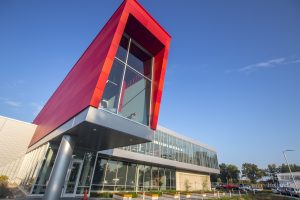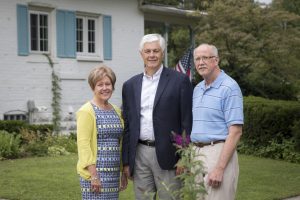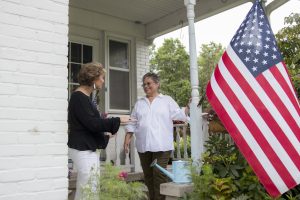October 2017 Sustainability News
October 31, 2017 – Letter: Opposition growing to Saugatuck development
October 31, 2017 – Holland High launches student engineering pathway
October 30, 2017 – Living Sustainably: Healthy food sustains healthy living
October 30, 2017 – Community Action House offers Thanksgiving baskets, seeks holiday donations
October 30, 2017 – Corals eat plastic because we’ve made it tasty, study suggests
October 30, 2017 – Home Help: Signs your heating system needs a tune-up
October 30, 2017 – November Climate Summit Will Create a Rule Book. What Will be the US Role?
October 29, 2017 – Michigan Bookshelf: “Of Things Ignored and Unloved”
October 27, 2017 – Climate change could hurt chocolate production
October 27, 2017 – Bill package aims to improve early childhood literacy
October 27, 2017 – PepsiCo Recycling Contest Fuels Sustainability Across College Campuses
October 27, 2017 – Hope students plan DACA support march
October 27, 2017 – Local farmers prepare for cold weather months
October 27, 2017 – How Our Company Connected Our Strategy to Sustainability Goals
October 27, 2017 – What Big Companies Can Teach Small Business Owners About Sustainability
October 26, 2017 – MSU officially open largest solar power array in North America
October 26, 2017 – Eco-Friendly Paving Revives Park Pathways
October 26, 2017 – IMMIGRATION COALITION ADVOCACY WEEK ACTIVITIES SCHEDULED OCT. 30 – NOV. 7 FOR CAMPUS COMMUNITY
October 26, 2017 – Trump declares opioids a public health emergency
October 25, 2017 – Tesla Turns Power Back On At Children’s Hospital In Puerto Rico
October 25, 2017 – How Cedar Rapids, Iowa, is adapting to climate change’s effects
October 25, 2017 – Michigan Winery and Inn Adopts Energy Efficient Measures for Farm and Table
October 25, 2017 – Hope to host basketball exhibitions to benefit hurricane relief efforts
October 24, 2017 – Controversial Saugatuck development gets approval from planning
October 24, 2017 – Lake Michigan is now clearer than Lake Superior — but why?
October 24, 2017 – Extreme Weather, Climate Change Costing Taxpayers Billions
October 24, 2017 – Guest Editorial: Childhood obesity is a problem we need to address
October 24, 2017 – Climate Change Is Costing Taxpayers Billions — and It’s Getting Worse
October 24, 2017 – Action on climate change, inspired by an 800-year-old saint
October 23, 2017 – Living Sustainably: Social diversity enhances area’s sustainability
October 23, 2017 – Reclaimed Asphalt Performance ‘At Least Equal’ to Virgin Materials, Says Skanska
October 23, 2017 – EPA cancels talks by 3 agency scientists at Rhode Island event
October 23, 2017 – Holland, Saugatuck schools receive local produce grants
October 23, 2017 – Seeking ‘common ground’ in climate change dialogues
October 23, 2017 – Mexico takes a big step in addressing carbon emissions
October 22, 2017 – Not everyone with a #MeToo is posting their story; here’s why some are refraining
October 22, 2017 – ‘You are not alone’: Domestic violence prevalent in Ottawa County
October 22, 2017 – Kitch-iti-kipi is an enchanting stop on your UP travels
October 21, 2017 – My Take: Greater interest is to protect Saugatuck Dunes property
October 21, 2017 – Sudanese refugee finds home in Holland
October 21, 2017 – CROP Walk donation
October 21, 2017 – Readers to vote for favorite books at HDL’s Readers’ Choice Awards
October 20, 2017 – EERE Success Story—Sun Number Partnership with Zillow Brings Solar Potential Scores to Millions of Americans
October 20, 2017 – My Take: Time for Holland to be welkoming to all
October 20, 2017 – This kills more people every year than war, smoking or road accidents
October 20, 2017 – How to add recyclability and sustainability into medtech plastics
October 20, 2017 – Check out local food, artists in action at Arts & Eats tour of Southwest Michigan
October 19, 2017 – Site of Amazon’s HQ2 has much to learn from Seattle
October 19, 2017 – Do ‘Sue and Settle’ Policies Work Against Industry? EPA Chief Pruitt Thinks So
October 19, 2017 – Bill would hit Nestle with $20M annual state bottled water tax
October 18, 2017 – The Future of Electric Charging Stations Projected in 4 Simple Maps
October 18, 2017 – Locals air concerns opposition of Saugatuck Dune development
October 18, 2017 – Stabenow introduces bipartisan conservation legislation
October 18, 2017 – Locals air concerns opposition of Saugatuck Dune development
October 18, 2017 – Wolverine’s Decades-Old Toxic Tannery Sludge Dumping Could Lead to Lawsuits
October 18, 2017 – Non-owner occupied Airbnbs now allowed in commercial zones in Holland
October 18, 2017 – Rug Recycling Bill Requiring Carpet Manufacturers to Set Stewardship Programs Passes in CA
October 18, 2017 – Sustainable Packaging Market Growth Driven by Preference, Regulations
October 17, 2017 – The 6 Ways Business Leaders Talk About Sustainability
October 17, 2017 – Target Commits to New Climate Goals & 100% Renewable Energy
October 17, 2017 – Is Going Paperless Penniless for Corporations?
October 16, 2017 – Living Sustainably: Airport supports sustainable local economy
October 16, 2017 – 5 myths about solar panels, debunked
October 16, 2017 – How to Best Communicate Sustainability?
October 14, 2017 – Holland-area business leaders named to 40 Under 40 list
October 14, 2017 – EPA to clean up Kalamazoo River between Otsego and Plainwell
October 14, 2017 – Ottawa County Parks and Recreation looks forward after busy summer
October 13, 2017 – My Take: Our community, our decision, our fiber
October 13, 2017 – Movie review: New glorious nature documentary shouldn’t be missed
October 13, 2017 – Leaf colors in West Michigan are expected to peak this weekend
October 13, 2017 – Petroleum clean up bill passes the state Senate
October 13, 2017 – Prevalence of invasive stink bugs in Michigan to continue growing, expert says
October 13, 2017 – The first casualty of North Korean nuclear tests? The country’s environment
October 12, 2017 – Saugatuck Dunes Coastal Alliance denied request to appeal development plan
October 12, 2017 – Saugatuck Dunes Coastal Alliance denied request to appeal development plan
October 11, 2017 – Judge allows Dakota Access pipeline to keep running
October 11, 2017 – Black River students learn food sources in Market Project
October 9, 2017 – Living Sustainably: Three Holland projects are finalists for state energy awards
October 9, 2017 – EPA chief says administration to roll back climate plan
October 8, 2017 – Hope College featured in Princeton Review’s green colleges
October 7, 2017 – Holland’s Tulip Time earns top honor from World Tulip Summit
October 7, 2017 – Why Musk is pitching solar panels to Puerto Rico even as residents struggle to get clean water
October 6, 2017 – Trump quietly stalls safeguards for dozens of endangered species
October 5, 2017 – Zeeland Christian students get project help from design firm Disher
October 4, 2017 – 5 eco-friendly tips for cleaning your home
October 4, 2017 – 3 important areas to focus on when winterizing your home
October 4, 2017 – 7 projects to help your home weather the winter safely and efficiently
October 3, 2017 – PepsiCo Recycling Contest Fuels Sustainability on College Campuses
October 3, 2017 – $240 million Holland Energy Park opens with ribbon cutting
October 3, 2017 – Sharing the road: Safety gear makes cycling safer, but can promote a false sense of security
October 3, 2017 – New Research Says Reducing Ozone Levels Produces Medical Benefits But Manufacturers Say the Rules Are Inflexible
October 2, 2017 – Living Sustainably: Holland Energy Park: Resource, destination, gateway
October 2, 2017 – Ottawa County to purchase historic home in Bend Area park
October 2, 2017 – Sustainable Sourcing a Key Pillar for Prosperity, Says Tetra Pak
October 1, 2017 –New exhibit looks at the Au Sable River


